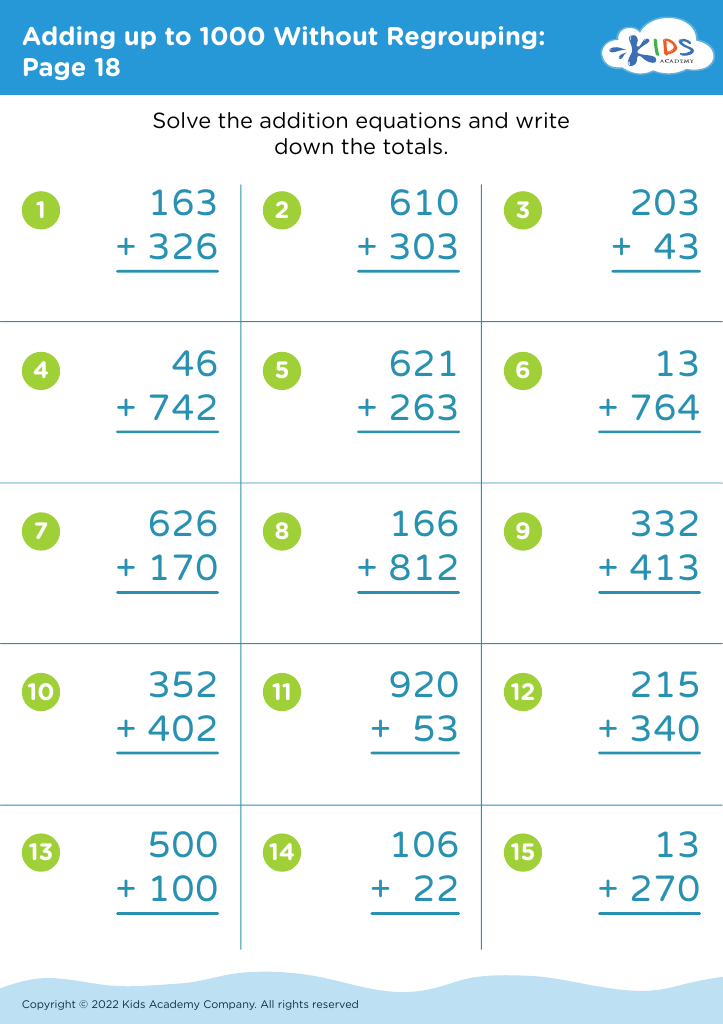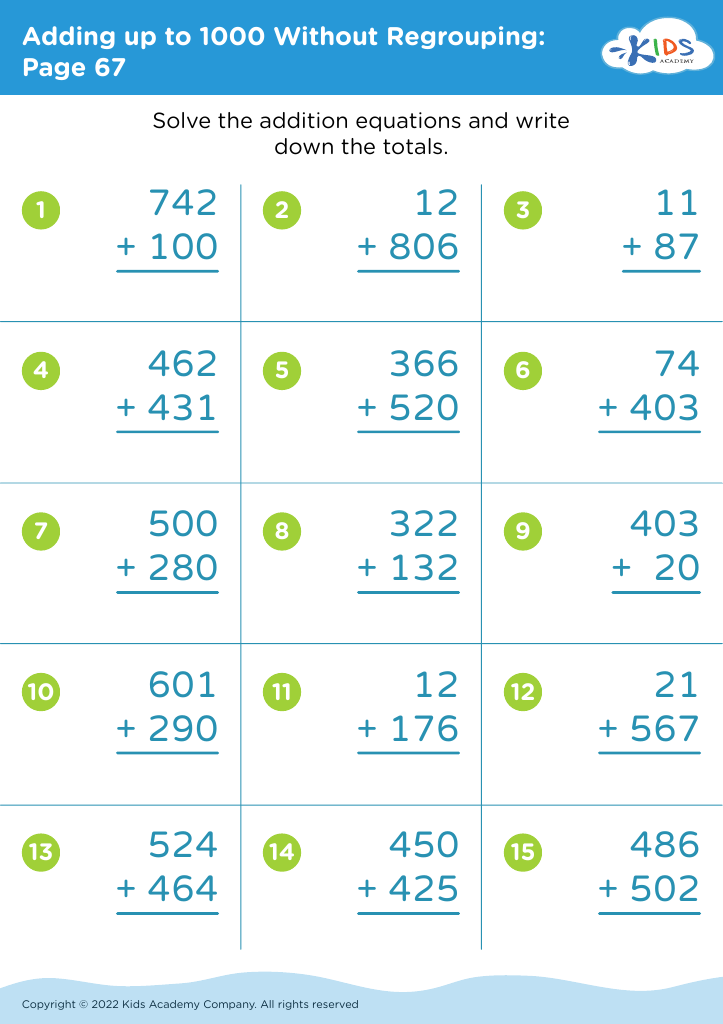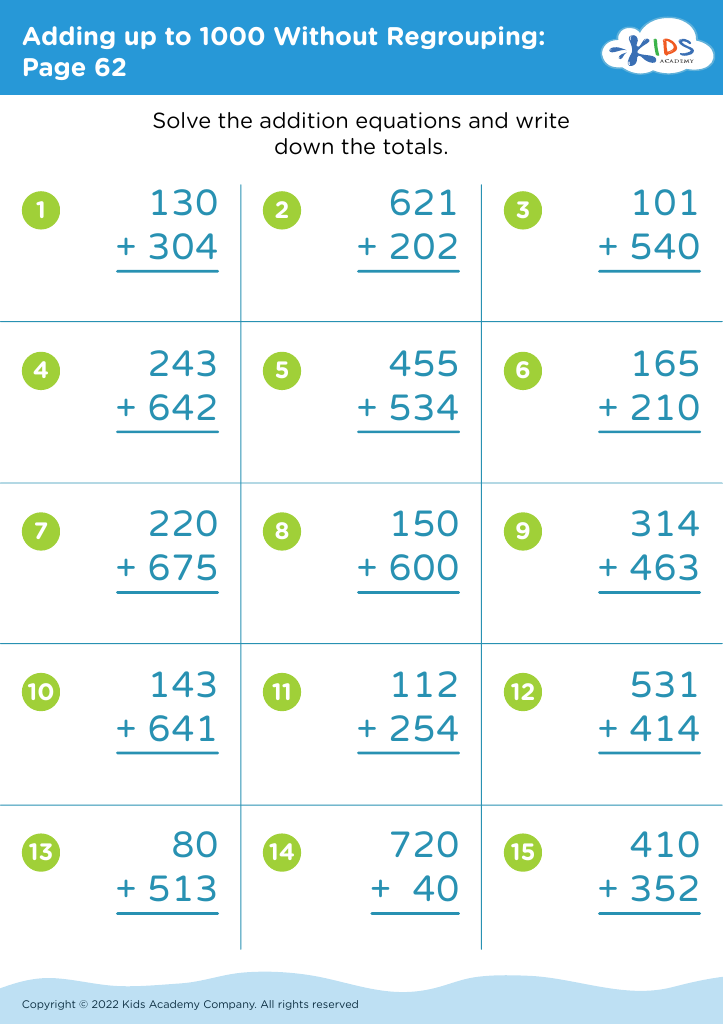Comparing Fractions Adding up to 1000 Without Regrouping Worksheets for Ages 6-7
3 filtered results
-
From - To
Welcome to our "Comparing Fractions Adding up to 1000 Without Regrouping Worksheets" designed specifically for children aged 6-7. These engaging worksheets focus on enhancing young learners' understanding of comparing fractions while reinforcing their skills in addition without regrouping. Through diverse and interactive exercises, students will practice identifying which fractions are larger or smaller, improving their number sense and confidence in math. The worksheets are aligned with educational standards, making them an excellent resource for both classroom and home learning. Dive into a fun-filled math adventure and empower your child to master comparing fractions today!
Comparing fractions that add up to 1000 without regrouping is an essential concept for children ages 6-7, as it lays the groundwork for a stronger understanding of both fractions and basic arithmetic. At this age, children are beginning to grasp the relationships between numbers and quantities. Teaching them how to compare fractions helps develop critical thinking skills, enabling them to analyze and evaluate numerical information.
Understanding fractions is foundational for more advanced mathematical concepts, such as ratios, proportions, and percentages, later in their education. When children learn to compare fractions, they gain a deeper awareness of whole numbers and their parts, which enhances their overall number sense. By focusing on fractions that sum to 1000, educators can link these concepts to real-world applications, such as measuring ingredients in cooking or understanding sharing among groups.
Furthermore, ensuring children can compare fractions without needing to regroup reinforces their fundamental computational skills. This standard aligns with early math curriculum goals, promoting confidence, engagement, and proficiency in mathematics. When parents and teachers invest time in these topics, they prepare children for ongoing success in math, encouraging a positive attitude toward problem-solving and analytical thinking as they grow.













